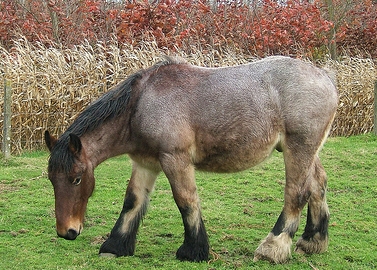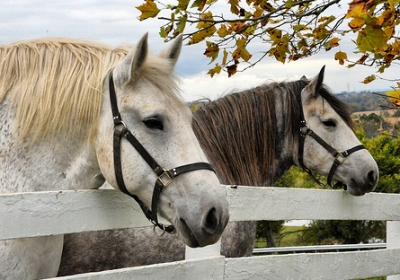
A 20 year old or older horse is considered senior and requires some special care.
Older horses need special attention paid to their dental care. Their teeth should be checked once a year. If their teeth fall out or become uneven, the horse will not be able to eat properly. Some older horses may need their food soaked with water so that they can chew it more easily.
Horses should also be checked daily for problems. Older horses take longer to recover from medical conditions, so it is important to detect them early. Check for lumps, swelling, wounds, skin problems and hoof problems by rubbing your hands all over the horse’s body. Check for weight loss too. A thick winter coat may make weight loss hard to detect. Your horse should visit the vet regularly because he can detect problems you can’t, such as Cushings disease, liver or kidney problems and anemia. Treat a cold seriously; you will be saved from more serious health problems down the road.
Digestion can also be a problem for older horses. There are commercial foods made especially for the digestive systems of senior horses. During the cold winter months, fiber is an important element in your horse’s diet.
Exercise is crucial for all horses. As long as your vet says it is OK, your horse should have light exercise. This will prevent conditions such as arthritis, obesity and respiratory disease. If the usual types of exercise are not possible, your vet may recommend swimming, hand-walking/ponying, passive muscle flexion, and other methods of physical therapy.
Senior horses need extra protection. In the cold, they may need a blanket. They also need shelter from the hot sun. Biting flies and horseflies tend to bother older horses more than younger ones. Older horses also need protection from younger horses, who may push them away from their food or attack them.

